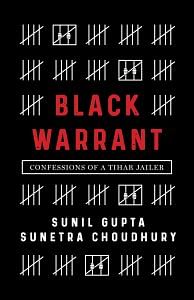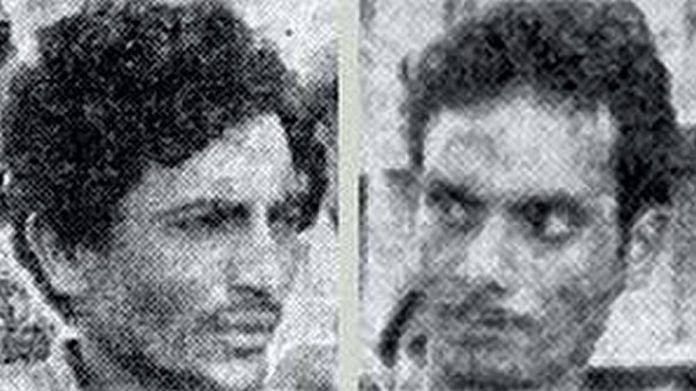Less than two years after I joined Tihar, I saw two men being hanged to death in front of my eyes. This was the case that changed Delhi forever.
On 26 August 1978, two teenagers who had hitchhiked a ride early evening were kidnapped, raped and murdered in the heart of the Capital. This was the crime that Billa and Ranga had been tried and convicted of and it was this case that would prep me for the role of the ‘accidental’ hangman that I would eventually become.
Nothing possibly could or should go wrong. But something did go wrong. Something really big.
Also read: The death penalty ordinance is yet another example of ‘lawlipop politics’
Decades after I first met Billa and Ranga, I can still distinguish them by their very distinct personalities. Ranga’s name in Tihar was ‘Ranga Khush’, a literal representation of his disposition. He was 24-year old and about six-feet tall and eerily, seemed quite happy in jail. In contrast, 22-year-old Billa who was much shorter, only about 5.5 feet tall, would skulk around the jail. Ranga participated in the daily life of the jail community, but Billa did not talk to anyone. He told us repeatedly that he was framed and falsely accused.
Every court reaffirmed the death sentence to him but Billa, the man whose blood and his victims’ blood had forensically linked him to the crimes, refused to accept it until the end. In contrast, when Ranga’s family came to meet him, he would embrace them and that moment with joy and then get on with it.
Maybe it is because Ranga truly believed his crime was lesser than Billa’s, and that he had tried to free Geeta and Sanjay, but Billa had stopped him. ‘They asked us for a lift and we gave it to them. The matter would have finished there. But Billa was attracted to Geeta and that’s why it led to such a crime. I only went along.’
In all my work, in all my years in Tihar, I have not seen any convicted rapist admit to his crime. Most blame the victim.
Also read: Death penalty is nothing more than political execution, Nirbhaya case isn’t different
Coming back to the Billa and Ranga case, as soon as the warrant was out and even before the prisoners were placed in their death cells, the summons was sent to Tihar’s hangmen – Fakira from Faridkot in Punjab and Kalu from Meerut Jail. These two conducted most of the eight hangings I saw during my time at Tihar. To my knowledge, today there are no professional hangmen left in the country.
Hanging was a well-paying job – for each hanging they got Rs 150 each and a special escort with security to bring them into Tihar and to return them safely to Faridkot and Meerut.
They [Billa and Ranga] were moved to phansi kothi, now located in Jail number 3 a week before the black warrant date.
The next morning on the last day of January 1982, Tihar was ready for D-Day. The entire Jail Road was shut down. The media was standing outside hoping to get something, anything. of course, they were not going to be able to see anything, not even a glimpse of visiting family members. Because the phansi kothi is the most obscure area and well hidden from public view. There is not much to distinguish this hanging room except for the hanging platform with a well that is 15 feet deep.
Also read: How Tihar jailers protected Sikh inmates after Indira Gandhi’s assassination
Billa and Ranga were given a cup of tea each when they woke up in the morning. They were asked for the last time if they wanted a magistrate to note their will. Both Billa and Ranga declined. The prisoners are then encouraged to shower and are dressed in black. Their hands and legs are handcuffed and just 10 minutes before the time stated on the black warrant they are brought to the execution platform.
And so early that morning of 31 January 1982, we watched as the noose was put around Ranga and Billa’s neck and their faces were covered so that they could not see what was happening around them. Billa was sobbing and crying but Ranga was triumphant until the end shouting, ‘Jo Bole So Nihaal, Sat Stri Akal!’ At the moment they plunged to their death, I noticed the colour of their face change. And before we knew what happened, Kalu, assisted by Fakira pulled the lever and Billa and Ranga collapsed into the well.
Our jail manuals tell us that death in these cases is instantaneous. The sudden collapse of the plank and the suspension into the air causes the vertebrae to break leading to death. But in my very first hanging, something very strange happened. As per protocol, when the doctor checked the two, after two hours, it appeared that while Billa had died, Ranga still had a pulse. We were told that since he was slim and tall and had held his breath, he had managed to survive the hanging. So one jail staff was given the task to jump into the well beneath his hanging body and pull his legs. The guard did as he was told and in this fashion, the last breath of Ranga’s life was finally pulled out of him.
But no one found out or cared too much at the time. Neither Billa nor Ranga’s family came to claim their bodies and it was left to us to cremate them both.
 This edited excerpt from Black Warrant: Confessions of a Tihar Jailer by Sunil Gupta and Sunetra Choudhury has been published with permission from Roli Books.
This edited excerpt from Black Warrant: Confessions of a Tihar Jailer by Sunil Gupta and Sunetra Choudhury has been published with permission from Roli Books.




Ranga & Billa is relative of Arundhati Roy or they are her ideal and want to be treated the same way the victims were treated. Those so called intellectuals with polluted mind are causing more damage to our India. Does she have the courage to change her own name to Ranga , Billa ? No she will try to misguide others but enjoy all facility from our Country. We the citizen who really love India will warn others against such coward and selfish anti Indians.
We lived in Delhi at the time. There was outrage and horror, a lot of it addressed against the Janata government. 2. If death by lethal injection is introduced, that would be a more humane way of taking a human life.